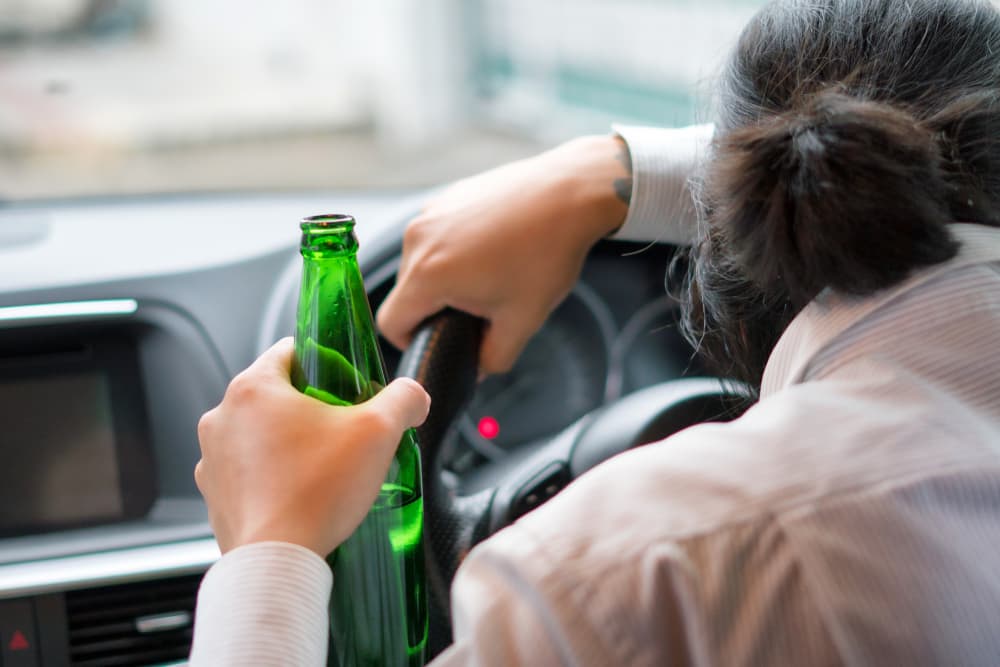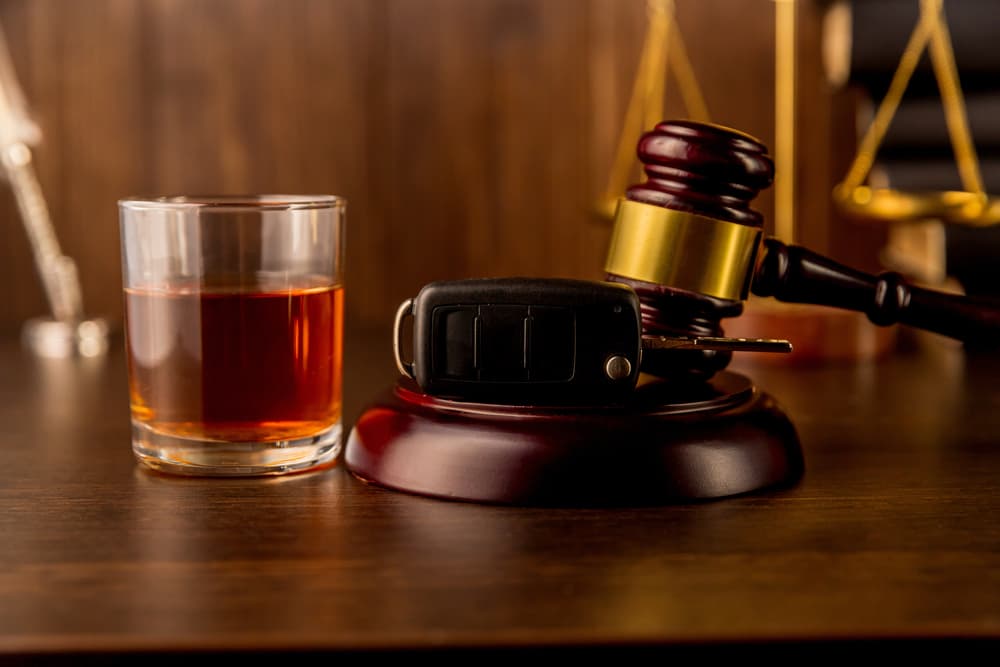One of the most common consequences of Driving While Intoxicated (DWI) for drivers holding a Commercial Driver’s License (CDL) is the loss of their license. If you are facing the loss of your CDL or other potential penalties after a DWI charge or arrest, immediately speak with a knowledgeable DWI defense attorney in your area. Your lawyer can promptly determine your available legal options, represent you during various proceedings, and secure the best possible result in your case.
DWI Legal Standards
Losing your CDL due to a DWI offense is a serious concern with significant consequences. The likelihood of losing a CDL for a DWI depends upon various factors, including the driver’s blood alcohol concentration (BAC), previous offenses, and the circumstances surrounding their arrest.
First, strict laws are in place regarding DWI offenses, particularly for CDL holders. The legal BAC limit for commercial drivers is lower than for non-commercial drivers and is set at 0.04 percent. If a CDL holder has a BAC at or exceeding this limit while operating a commercial vehicle, they may face severe penalties, including the potential loss of their CDL.
Moreover, previous DWI offenses significantly increase the likelihood of losing a CDL. Some states (including Texas) employ a lookback period, meaning prior DWI convictions within a certain time frame can exacerbate penalties for subsequent offenses. Repeat offenders are subject to harsher sanctions, including longer license suspensions or revocations.

The circumstances of the DWI arrest also play a crucial role. If the DWI incident involved aggravating factors such as an accident causing injury or death, the penalties escalate. Additionally, refusing to submit to a breathalyzer test can result in an automatic CDL suspension, even without a conviction.
Furthermore, laws mandate administrative penalties alongside criminal charges for DWI offenses. For example, in Texas, the Department of Public Safety (DPS) can administratively suspend a CDL upon arrest for DWI, pending the outcome of the criminal case. This means a CDL holder may lose their driving privileges even before going to trial.
Overall, the likelihood of losing a CDL for a DWI is high, especially considering the stringent laws and potential penalties. CDL holders must exercise extreme caution and responsibility when operating commercial vehicles to avoid jeopardizing their livelihoods and facing severe legal consequences.
How a DWI Defense Lawyer Can Help with Your Case
A DWI defense attorney plays a crucial role in helping CDL drivers navigate the complexities of DWI charges and mounting a strong defense. These legal professionals possess specialized knowledge of local DWI laws and are skilled at employing various strategies to defend CDL drivers facing DWI charges.
First, a DWI defense attorney can scrutinize the circumstances surrounding the DWI arrest to identify potential flaws in the prosecution’s case. This includes examining the legality of the traffic stop, the administration of field sobriety tests, and the accuracy of chemical tests, such as breathalyzer or blood tests. Any procedural errors or violations of the accused individual’s (or defendant’s) rights can potentially challenge the validity of the evidence against them.

Furthermore, a DWI defense attorney can leverage their understanding of state DWI laws to explore possible defenses tailored to the case's specific circumstances. This may involve arguing that the CDL driver’s BAC was below the legal limit at the time of driving, challenging the reliability of chemical test results, or presenting evidence of alternative explanations for observed signs of impairment.
Additionally, DWI defense attorneys are adept at negotiating with prosecutors to pursue favorable plea agreements or reduced charges, particularly for first-time offenders or cases with mitigating factors. They can advocate on behalf of CDL drivers to minimize the overall effect of DWI charges on their livelihoods and driving privileges.
Moreover, if the case proceeds to trial, a skilled DWI defense attorney can effectively represent the CDL driver in court, presenting a compelling defense strategy and challenging the prosecution’s evidence through cross-examination and expert testimony.
Overall, a DWI defense lawyer can provide invaluable assistance to CDL drivers facing DWI charges by offering trusted legal guidance, mounting a robust defense, and advocating for their rights and interests throughout the legal process.
Potential Legal Defenses to a DWI Involving a Commercial Driver
Several potential legal defenses might challenge the charges and protect the driver’s rights in a DWI case involving a CDL holder.
One common defense strategy is to challenge the validity of the traffic stop. The Fourth Amendment protects individuals from unreasonable searches and seizures, including traffic stops, without reasonable suspicion or probable cause. If the stop leading to the DWI arrest was unlawful, then any evidence obtained, including observations of impairment or chemical test results, may be suppressed at trial.
Additionally, your attorney might contest the accuracy and reliability of field sobriety and chemical tests. Field sobriety tests are subjective and can be skewed by various factors, such as environmental conditions and physical limitations. An experienced attorney can question the administration of these tests and argue that they do not conclusively prove impairment. Similarly, chemical tests such as breathalyzer or blood tests may be inaccurate because of improper calibration, maintenance issues, or mishandling of samples, casting doubt on their accuracy.
Furthermore, the defense may present alternative explanations for observed signs of impairment. Medical conditions, fatigue, stress, or even the driver’s natural demeanor can sometimes mimic the symptoms of intoxication. By providing evidence of factors other than alcohol consumption that can explain the driver’s behavior, the defense can undermine the prosecution’s case.
Moreover, if the CDL driver’s constitutional rights were violated during the arrest or investigation, such as improper Miranda warnings or coercion, this issue can be raised as a defense. Any violations of the defendant’s legal rights may lead to the suppression of evidence or a complete dismissal of the pending charges.
In general, potential legal defenses in a DWI case involving a CDL include:
- Challenging the validity of the traffic stop.
- Contesting the accuracy of field sobriety and chemical tests.
- Presenting alternative explanations for observed impairment.
- Asserting violations of the accused’s constitutional rights.
A skilled DWI defense attorney can assess the specifics of the case and develop a tailored defense strategy to achieve the best possible outcome for the CDL driver.
Speak with a DWI Defense Attorney Near You Today
DWIs involving CDL drivers can result in extremely serious penalties, including losing a driver’s license. To obtain the best possible result in your criminal case, always have a knowledgeable criminal defense lawyer advocating for you during every stage of the proceedings. Your lawyer can formulate appropriate legal defenses, negotiate with prosecutors on your behalf, and pursue a favorable result in your case.
